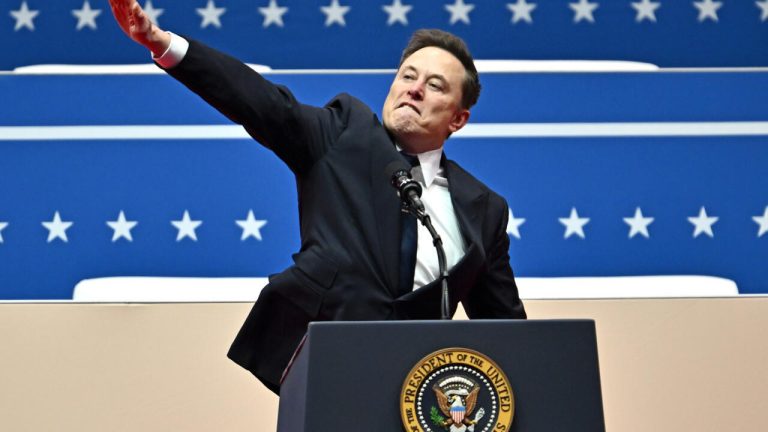
New York, N.Y. — Elon Musk’s decision to make a gesture during Donald Trump’s inauguration rally that many have compared to the Nazi salute has ignited a firestorm of criticism—and rightly so. In a nation that prides itself on democratic principles and freedom, the imagery of an extended right arm, closely resembling the infamous salute of Hitler’s regime, is not just provocative; it’s an affront to the collective memory of the millions who suffered under fascist oppression.
This gesture cannot be dismissed as trivial or accidental. The Nazi salute is not merely a historical artifact; it is a symbol of totalitarianism, white supremacy, and genocide. Its modern use serves as a rallying cry for extremist ideologies that undermine democracy and human rights. By performing such a gesture, Musk, intentionally or not, taps into these dark undercurrents, giving a veneer of legitimacy to those who would seek to resurrect them.
Defenders of Musk may argue that the outrage is overblown, with some claiming he was misunderstood or simply being provocative in a playful way. Musk himself has taken to X (formerly Twitter) to dismiss the backlash as baseless attacks, an all-too-familiar tactic in an era where accountability is often reframed as victimhood. But gestures carry meaning, especially from public figures who wield immense influence. Musk’s position as a tech magnate and cultural figurehead means that his actions resonate far beyond a single rally.
The United States, like many democracies, is not immune to the creeping normalization of extremist ideologies. Incidents like this are not isolated; they exist within a broader context of rising authoritarian sentiment and disinformation. When someone of Musk’s stature flirts with symbols that evoke fascist regimes, it emboldens those who subscribe to such ideologies. It also erodes the boundaries that keep extremism at bay.
To dismiss the gesture as harmless or unintentional is to ignore the historical weight of the Nazi salute. The gesture represents more than just a hand movement; it symbolizes oppression, violence, and the rejection of diversity and equality. For Holocaust survivors and their descendants, for communities that continue to fight against neo-Nazism and white supremacy, such imagery is a painful reminder of past atrocities and a chilling harbinger of what could resurface if vigilance falters.
Musk’s actions—and his subsequent dismissal of criticism—underscore a dangerous trend where powerful individuals exploit symbols of hate for attention or to galvanize a specific audience. While Musk has positioned himself as a disrupter and provocateur, there is a line between innovation and irresponsibility. In this case, he has crossed it.
Public figures have a responsibility to recognize the power of their actions and the influence they wield. Musk’s gesture is not an isolated act but a reflection of how dangerous rhetoric and imagery can seep into the mainstream. If we fail to hold leaders accountable for such actions, we risk allowing these symbols to gain a foothold in public discourse, normalizing hatred and authoritarianism.
At a time when democracy faces threats from within and without, the casual invocation of fascist imagery cannot be ignored. Elon Musk’s gesture may have been dismissed as a trivial stunt by some, but its implications are anything but trivial. It is a stark reminder that vigilance against the normalization of extremism must remain steadfast, and that symbols of hate, no matter the context, have no place in our society.
Musk’s Gesture Highlights Danger of Flirting with Fascist Imagery (Jan. 22, 2025)